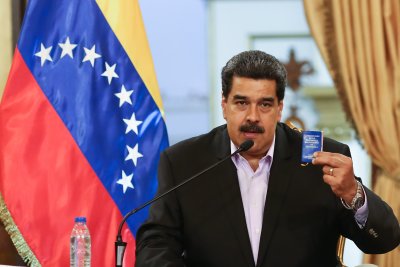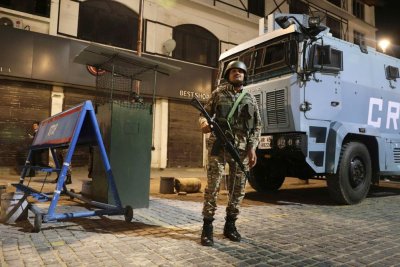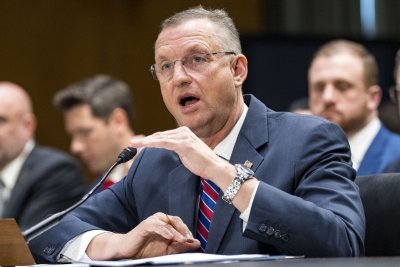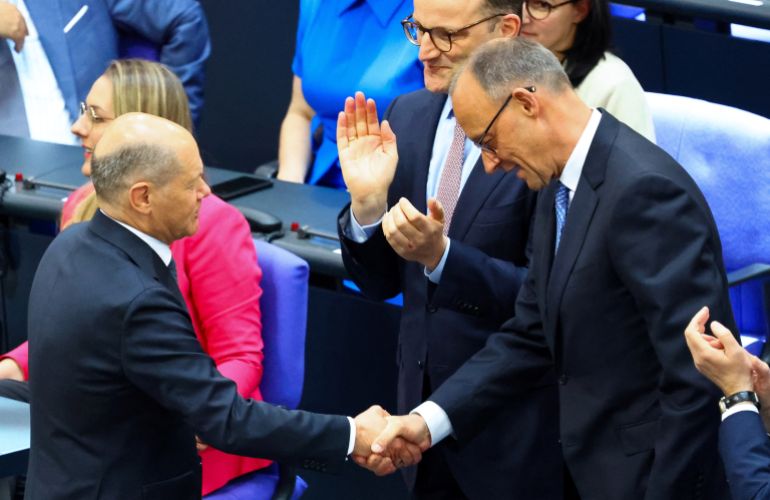Trump announces informal cease-fire with Houthis
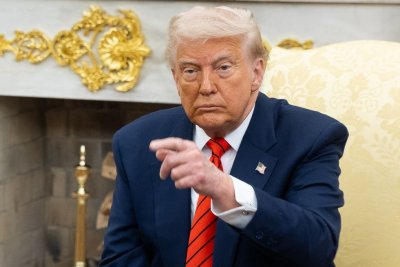
May 6 (UPI) — The Yemen-based Houthis have “capitulated” and stopped attacking commercial and military shipping, President Donald Trump announced after meeting with Canadian Prime Minister Mark Carney on Tuesday.
“They’ve announced to us at least that they don’t want to fight anymore,” Trump told media.
“They just don’t want to fight, and we will honor that,” Trump said. “They have capitulated. But, more importantly, they … say they will not be blowing up ships anymore.”
Trump said Houthi representatives approached his administration Monday night seeking a halt to nearly two months of continuous airstrikes against Houthi targets in Yemen, Politico reported.
U.S Central Command has said military strikes have hit at least 800 targets and killed hundreds of Houthis after the aerial campaign against the organization that controls significant parts of Yemen.
The strikes began on March 15 and were intended to stop the Houthis from continuing to attack commercial and military vessels in the Red Sea and the Gulf of Aden.
The Houthi strikes caused many commercial shipping outfits to stop using the Suez Canal and instead sail around the southern end of Africa to avoid waters near Yemen.
Trump said an informal agreement has ended the hostilities between the U.S. military and the Houthis.
It’s unclear if the Houthis agreed to stop attacking all shipping or only U.S.-flagged vessels.
Special envoy Steve Witkoff helped to negotiate the cease-fire over the weekend, with Oman officials acting as a mediator, Politico reported.
“Efforts have resulted in a cease-fire agreement between the two sides,” Omani Foreign Minister Badr Albusaidi said Tuesday in a post on X.
“In the future, neither side will target the other, including American vessels, in the Red Sea and Bab al-Mandab Strait, ensuring freedom of navigation and the smooth flow of international commercial shipping,” he said.
The Houthis will continue their strikes against Israel, though.
Houthi senior official Mohammed al-Bukhaiti said the Houthis “will definitely continue our operations in support of Gaza” until hostilities end there, Bloomberg News reported.
